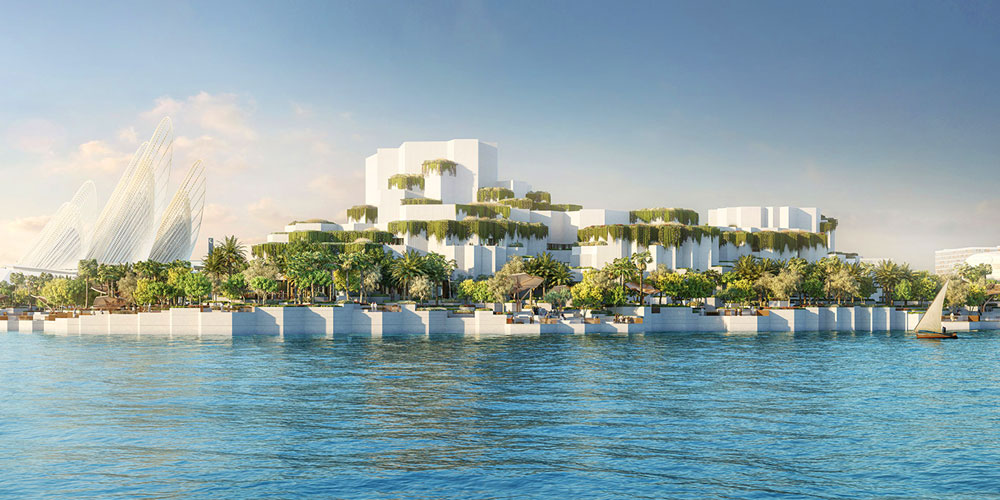Natural History Museum Abu Dhabi(Under Construction)
Located in Saadiyat Cultural District, the Natural History Museum Abu Dhabi will feature some of the rarest natural history specimens ever found on planet Earth.
The Natural History Museum Abu Dhabi will be a scientific research and teaching institution, as well as an educational resource for learning about the evolving story of our planet, aiming to ignite a life-long passion for the natural world in visitors of all ages.
Visitors will travel on a journey through time and space, from the beginning of the universe to a thought-provoking perspective into our Earth’s future. A highlight of the new museum’s collection will be the world-famous skeleton of ‘Stan’, the Tyrannosaurus rex, the Murchison Meteorite specimen, and other spectacular collections as part of its compelling curatorial vision, as well as fascinating experiences which will be created by a dedicated team in Abu Dhabi.
The museum will join a global community of natural history museums committed to public education and to the development and sharing of scientific research. Within the museum, the innovative scientific research facility will undertake studies in areas including zoology, palaeontology, geology, marine biology, molecular research (aDNA and proteomics), entomology and earth sciences. The primary aim will be to advance knowledge and increase understanding of our past, but also to create a think tank for future innovation and emerging technologies.
With a focus on exceptional specimens and immersive displays, the Natural History Museum Abu Dhabi galleries will take visitors on an inspirational journey back to the very beginning of time, narrating the evolution of our universe, the Earth’s formation, and the history of life on our planet.
Covering an area of more than 35,000 sqm, lead architects Mecanoo designed the Natural History Museum Abu Dhabi to resonate with natural rock formations, reflecting the museum’s goal of improving understanding of and engagement with the natural world.
The Natural History Museum Abu Dhabi is due to be completed at the end of 2025.


